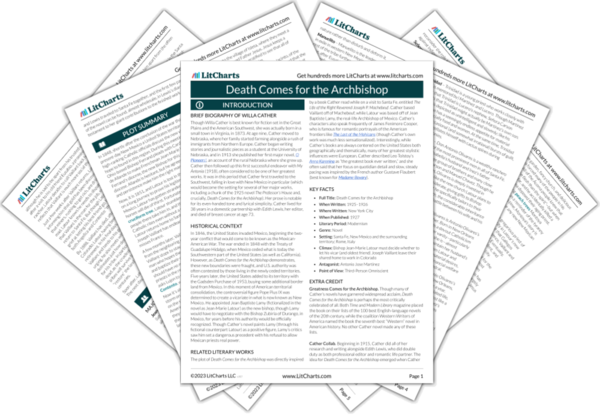Latour’s abiding love for both Vaillant and the church allows him to let his friend go, even though it hurts him deeply. Tellingly, though, Vaillant’s comments to Magdalena suggest that the vicar does not feel the same way; while the more reserved Latour is “lonely” only when Vaillant is away, Vaillant feels lonely anytime he goes too long without exploring new places or making new friends.
